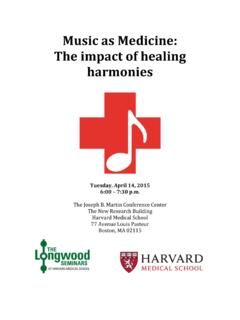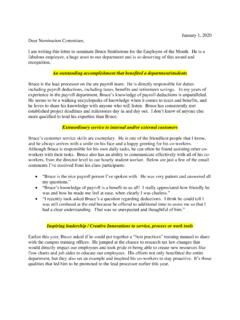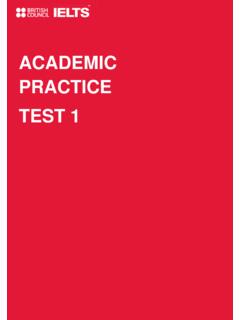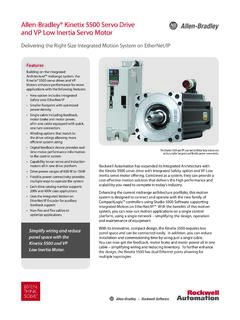Transcription of A Review of Research on School Field Trips and Their Value in …
1 International Journal of Environmental & Science Education International Journal of Environmental & Science Education (2014), 9, 235-245. Vol. 3 , N o. 3 , J uly 2 0 0 8 , x x - x x A Review of Research on School Field Trips and Their Value in Education Marc Behrendt Ohio University Teresa Franklin Ohio University Received 16 June 2013; Accepted 8 january 2014. Doi: The purpose of this paper is to examine the importance of science Field Trips as educational tools to connect students to classroom concepts. Experiential learning at formal and informal Field trip venues increases student interest, knowledge, and motivation. The teacher's role in preplanning, implementation, and reflection often dictates the impact that the Field trip will have on students.
2 Science teacher education programs do not traditionally instruct preservice teachers how to plan or coordinate a Field trip. Once teachers are empowered and learn how to develop and orchestrate a successful Field trip, they will enable students to develop interest in science, which may lead to improved learning or improved science literacy. Because some School systems are limiting science Field Trips , this paper concludes by examining inexpensive or cost- free Field trip ideas. Keywords: experiential learning, informal learning, Field trip, professional development, interest in science, science teacher education Introduction Students who directly participate during a Field experience generate a more positive attitude about the subject. Many researchers have investigated knowledge gain and learning that occurred during Field Trips (Hudak, 2003; Kisiel, 2006a; Mawdsley, 1999; Michie, 1998; Nadelson &.)
3 Jordan, 2012; Scarce, 1997; Scribner-MacLean & Kennedy, 2007). Research by Cwikla, Lasalle, & Wilner (2009) suggested that eighth grade students with an interest in science were significantly more likely to acquire science related careers than students with no interest in science. Yet, science is often limited in elementary School curricula despite the recognized importance of early development of science concepts and skills (Fries-Gaither & Lightle, 2011). Teachers are in position to motivate and capture students' interest in the sciences. Effective ISSN 1306-3065 Copyright 2006-2014 by iSER, International Society of Educational Research . All Rights Reserved. 236 Behrendt & Franklin methods to develop student interest include experiential activities and Field Trips , which create authentic learning opportunities for students, regardless of the content area.
4 However,experiential activities and Field Trips do not simply happen, teachers need to understand that such activities require organization, planning, and student reflection to maximize the learning experience, the same as classroom-based experiential learning. The purpose of this paper is to examine literature concerning experiential learning activities and Field Trips , focusing on science-related Field Trips and the role of the classroom teacher prior to, during and after the Field experience. Field Trips A Field trip, which may also be termed as an instructional trip, School excursion, or School journey, is defined by Krepel and Duvall (1981) to be a School or class trip with an educational intent, in which students interact with the setting, displays, and exhibits to gain an experiential connection to the ideas, concepts, and subject matter.
5 Tal and Morag (2009) described Field Trips as student experiences outside of the classroom at interactive locations designed for educational purposes. Field Trips may be planned for five purposes: 1) To provide firsthand experience, 2) To stimulate interest and motivation in science, 3) To add relevance to learning and interrelationships, 4) To strengthen observation and perception skills, and 5) To promote personal (social) development (Michie, 1998). Field Trips take students to locations that are unique and cannot be duplicated in the classroom. Each student observes natural settings and creates personally relevant meaning to the experience. Interactive exhibits help students play with concepts, activities often not possible in the classroom.
6 Earlier course content suddenly becomes relevant as students assimilate and accommodate new understanding and cognition (Lei, 2010a). The connection between the Field trip venue and the classroom links the Field trip's experiential learning with prior experiences and learning from the classroom (Lei, 2010b). To save money and time from preparation and traveling, some instructors choose to simply use the School computers and take digital Field Trips . Options are plentiful and students no doubt learn from the digital experience, but students only experience what the media thinks is important, and the students do not encounter a multidimensional activity in which all Their senses are fully involved (National Research Council (NRC), 2009). In contrast, Field Trips are experiential, authentic social events that create a new way of knowing an object, concept, or operation (Scarce, 1997).
7 Quality experiences lead to deeper learning and interest development (NRC, 2009). Kinds of Field Trips Formal Field Trips consist of planned, well-orchestrated experiences where students follow a documented format. Government agencies, museums, and businesses offer excellent formal experiential learning activities and programs, which are usually run by the venue's staff. One student's experience is essentially the same as any other student's experience. Teachers find such programs comfortable because the students are bound to a choreographed agenda. However, there are minimal opportunities for students to personally interact and connect to the experience (Rennie, 2007). Informal Field Trips are less structured and offer students some control and choice concerning Their activities or environment.
8 When observing students interacting in an informal education setting such as a science center or Field station, teachers are often amazed by A Review of Research on School Field Trips and Their Value in Education 237. how much students know and which students possess the most knowledge (Rennie, 2007). Informal education is a legitimate cognitive learning model. Informal science experiences - in School -based Field Trips , student projects, community based science youth programs, casual visits to informal learning settings, and press and electronic media can be effectively used to advance science learning (Hofstein & Rosenfeld, 1996, p. 106 ). Students feel at ease in an informal learning environment. The focus may be individualized, activities are not competitive or assessed, interaction is voluntary and unforced, and social interaction is encouraged.
9 Together, these qualities create an intrinsically motivated student (Rennie, 2007) that encourages students to examine Their connection to the local and national communities, as well as Their connection to the local and global ecosystems (Krepel & Durral, 1981). Non- School related informal Field Trips such as family activities, also contribute significantly to children's science knowledge (Rennie & McClafferty, 1995), although science knowledge and interest acquired at home may be compromised if the majority of experience occurs through the media such as television and the Internet, in which the children may have difficulty determining reality from entertainment. Experiential Learning It is important to understand experiential learning when discussing Field Trips .
10 Experiential learning is authentic, first-hand, sensory-based learning. Experiential activities explore, touch, listen to, watch, move things, dissemble and reassemble. Learning consists of grasping an experience and then transforming it into an application or result (Kolb, 1983). The Association for Experiential Education defined experiential learning as a methodology in which educators direct students to a specific experience, and then guide the students through reflection to increase knowledge, develop skills, clarify values, and develop people's capacity to contribute to Their communities (Association for Experiential Education, 2012, ). Experiential learning is not restricted to a certain age levels. Infants, toddlers, and growing children develop all Their skills and knowledge through experience.















